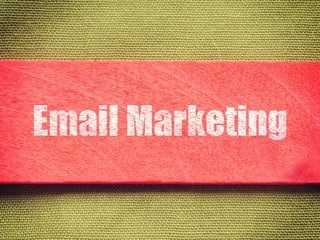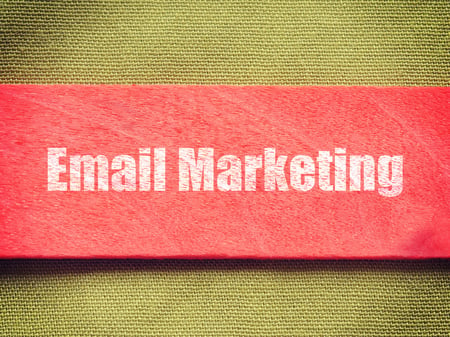 You just landed on the perfect website. The site fills your needs, is attractive, and easy to navigate. You start reading the content and then all the sudden you're interrupted by a big popup box asking for your email address. I don't know about you, but I find this to be one of the most unsatisfying and frustrating website experiences. These companies sacrifice user experience in order to try and build their email list. Are they thinking about their site visitors or are they thinking about themselves? I think the answer is obvious.
You just landed on the perfect website. The site fills your needs, is attractive, and easy to navigate. You start reading the content and then all the sudden you're interrupted by a big popup box asking for your email address. I don't know about you, but I find this to be one of the most unsatisfying and frustrating website experiences. These companies sacrifice user experience in order to try and build their email list. Are they thinking about their site visitors or are they thinking about themselves? I think the answer is obvious.
As a member of a team that that creates beautiful online user experiences, we pay close attention to how people navigate and interact with websites. Turning people off and causing them to bounce out with an annoying email popup is something we stay away from. Because of that we wanted to share six alternative ways that you can capture email addresses and grow your list without sacrificing the user experience of your website.
1. Add a Subscribe Checkbox to Your Comments Form
Today a website needs to pull people in and convert visitors into customers, the best way to do that is by creating remarkable content and publishing it as a blog post on your website. The majority of blogs have a comment form where people can give their opinion and comment on the content. On nearly all blogs I've seen you have to type in your name and email address to leave a comment. If a person is already giving you that information, why not give them the option to subscribe to your email list at the same time they are leaving a comment?
There are many ways you can do this and it all depends on what type of platform your website is running on. If you're running a HubSpot website, you'll need to have your web team add a small snippet of code that will add the email subscribe checkbox to your blog comments. For those of you running a WordPress site, there are a few different plugins you can add to give you this functionality as well. WP Subscribers, Newsletter Sign-Up, and Subscriber's Magnet are popular and very effective email subscriber plugins.
2. Add a Subscribe Button to your Social Icons
The majority of websites and blogs have a place that give people an option to share the content on social networks like Facebook, Twitter, Pinterest, LinkedIn, and others. People have become accustomed to seeing and using these social icons, and that gives you an opportunity to build your email list. Simply add an email subscribe button to the collection of social icons. Most social sharing application will already have the email button as part of its options, you'll just need to connect your email marketing program to it.
3. Add an Email Subscribe Box to your Homepage
The homepage is one of the most visited pages on your website. That's a lot of valuable real estate! It only makes sense to add an email subscribe area on it. One of the best ways to gain email subscribers is to add an attention-grabbing feature box somewhere above the fold of your homepage. This feature box is a call-to-action that directs people to subscribe to your email list. It typically includes some information on the benefits people will get from subscribing as well as an email entry space.
This is an extremely effective strategy but it does take some testing. Test the location of the box; does it perform better at the top right of your home age or maybe on the side bar? Does a blue or yellow box convert people to subscribers better? Is your call to action strong enough? HubSpot and WordPress both make this adding and testing positions an easy task. For HubSpot users, it's the simple placement of a module and then some styling. WordPress users can experiment with a plugin like Plugmatter, which will allow you to easily incorporate a custom feature box design on your blog without additional coding or design work.
4. Create an Email Building Land Page
Landing pages are some of the most effective ways to gather information from website visitors. The sole purpose of a landing page is to gather this information; there's no distracting sidebar, no top-of-page navigation, no confusion on what to do. You should include some type of incentive for them to give you their email address. Incentives are usually free eBooks, special discounts, or anything else that might prompt them to sign up.
Here are some tips for building a high-converting landing page.
- State the Benefit Clearly - Use enticing copy that clearly states what the person will get when they subscribe to your email list.
- Sample Content - Dive into your website analytics and find the most popular piece of content and feature that headline on your email landing page. This will give people a good idea of the type of information they'll be receiving from you.
- Frequency - Some people get annoyed when they receive an email every time you publish a new blog post. Include an option that allows them to choose the frequency of which they'll receive email updates. It could be instantly, weekly or monthly, but giving them the option will help keep them from unsubscribing down the road.
5. Add a Subscribe Button to Facebook
Facebook is an important place for businesses to promote their brand and engage with customers. It's also a great place to include an option for people to subscribe to your email list. There are a several good third-party Facebook applications that easily add an email subscription button to your Facebook page. Email marketing providers like MailChimp, Constant Contact, and HubSpot provide these apps and easily allow you to build your list using your Facebook audience.
The death of email has been predicted by the so-called experts for the past several years. Truth is, email is still one of the most effective communication channels, so it's not going away anytime soon. Because of this, building an email list is one of the most important marketing strategies you can do. Use the above tips to capture email address on your website without sacrificing the user experience. Say it with me, popup email boxes are bad!





